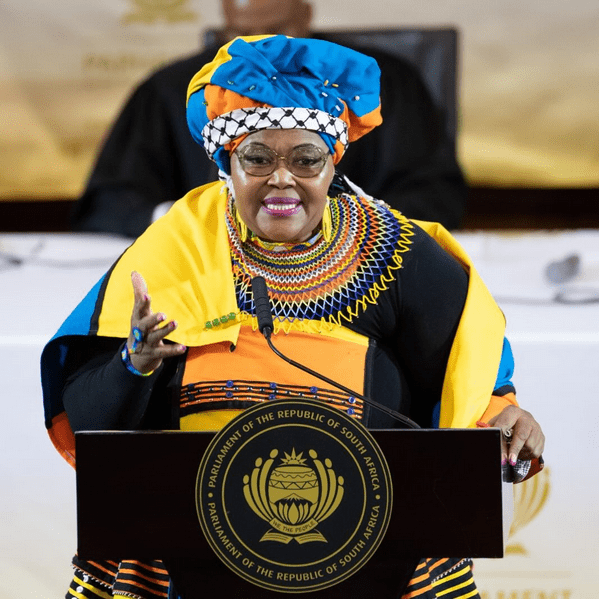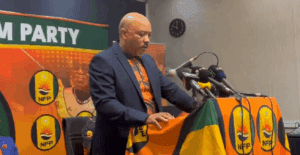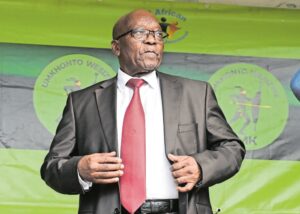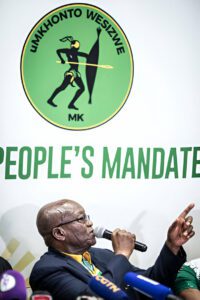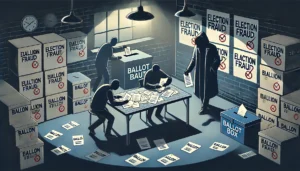The uMkhonto weSizwe Party (MK Party) has called for the immediate resignation of Minister of Water and Sanitation Pemmy Majodina, following disclosures in Parliament that water board chairpersons were paid millions of rand for attending only a handful of meetings. The revelations have triggered a storm of criticism about financial governance in a sector already under severe pressure.
Payments Under Scrutiny
In her own written reply to the National Assembly, Majodina confirmed that board chairpersons at various water entities had earned substantial sums. Advocate Vusi Khuzwayo, chairperson of uMngeni-uThukela Water, received R1.4 million for 13 meetings, along with R179,000 in travel claims.
Similarly, Precious Sibiya of the Trans-Caledon Tunnel Authority (TCTA) was paid R1.2 million for attending 10 meetings, while Lepelle Northern Water chairperson Dr Nndweleni Mphephu collected more than R1 million for the same number of sessions, in addition to R139,000 in travel expenses.
At Magalies Water, chairperson Keneilwe Sebego earned R920,000 for 13 meetings, plus R67,000 for travel. Amatola Water chairperson Pam Yako was remunerated R934,000 for 21 meetings, with R70,000 in travel costs. Collectively, these payments form part of an estimated R50 million spent annually on water board fees across the country.
MK Party’s Response
The MK Party argues that these figures reveal not only excess but a breach of public trust. Party spokesperson Nhlamulo Ndhlela said criminal charges should follow.
“The minister has failed in her constitutional duty to guarantee every South African the right to sufficient water and must step down immediately,”
Ndhlela declared.
He further insisted that the implicated board members should face criminal accountability, with findings referred to the National Prosecuting Authority (NPA). The party is pushing for a nationwide forensic investigation by the Special Investigating Unit (SIU) and for Parliament’s portfolio committee to be furnished with the ministerial memo on board hour limits. Ndhlela added that all variance payments should be frozen until the audit is finalised.
Departmental Performance Under Pressure
The controversy has erupted against the backdrop of mounting problems within the Department of Water and Sanitation. Billions of rand have reportedly been lost due to delays in large-scale projects, while the Auditor-General has highlighted persistent issues in financial statements, project management and contract oversight in the bulk water system.
Civil society has also raised concerns. The South African Human Rights Commission (SAHRC) recently met with Majodina and senior officials to discuss systemic weaknesses. The SAHRC drew attention to its policy brief outlining legislative tools to confront the “water mafia” phenomenon and ongoing sabotage of key infrastructure.
Organised Crime and National Priority
The commission stressed that organised criminal networks have embedded themselves within the sector, often compromising service delivery for financial gain. Particular concern was expressed about the water crises in Hammanskraal and the Emfuleni Local Municipality, where residents continue to suffer intermittent or unsafe supply.
Majodina, however, has emphasised that the Presidency has elevated water provision to a national priority. She noted that President Cyril Ramaphosa has mandated a multi-departmental forum, chaired by Deputy President Paul Mashatile, to address the escalating crisis. The Department of Water and Sanitation welcomed the SAHRC’s policy input, saying it supports their efforts to combat corruption and criminal interference.
Calls for Accountability
For the MK Party, however, these commitments do not go far enough. The party has pledged to pursue accountability both inside and outside of Parliament. It insists that public money must be recovered where mismanagement has occurred, and that those responsible must face the full weight of the law.
Majodina’s office had not responded to questions at the time of publication.

